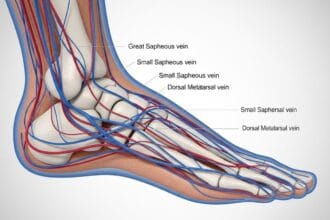Gut health plays a crucial role in overall well-being, and its importance extends even further for athletes. The digestive system not only processes nutrients vital for energy and recovery but also influences immune function, inflammation, and mental health, all of which are critical for peak athletic performance. This article delves into the intricacies of gut health in athletes, emphasizing the roles of nutrition, hydration, and other key strategies for optimizing performance, according to leading experts at Manhattan Gastroenterology.
The Gut-Performance Connection
The gut, often referred to as the “second brain,” hosts trillions of microorganisms collectively known as the microbiome. These microorganisms aid in digestion, produce essential vitamins, and help regulate the immune system. For athletes, a well-balanced gut microbiome can lead to improved nutrient absorption, reduced inflammation, and enhanced recovery times.
Gut Microbiome and Athletic Performance
Research has shown that the gut microbiome can influence athletic performance in several ways:
- Energy Extraction and Metabolism: A diverse and healthy gut microbiome enhances the body’s ability to extract energy from food, which is crucial for endurance sports.
- Inflammation and Recovery: Beneficial bacteria can help control inflammation and promote faster recovery after intense physical activity.
- Immune Function: A robust immune system, supported by a healthy gut, reduces the risk of illness and infections, allowing athletes to maintain consistent training schedules.
Nutrition for Gut Health
Optimal nutrition is the cornerstone of gut health. Here are some dietary strategies to support a healthy gut microbiome in athletes:
Prebiotics and Probiotics
- Prebiotics: These are non-digestible fibers found in foods like garlic, onions, bananas, and whole grains. They act as food for beneficial gut bacteria, promoting their growth and activity.
- Probiotics: Live beneficial bacteria found in fermented foods like yogurt, kefir, sauerkraut, and kimchi. Probiotic supplements can also be useful, especially strains like Lactobacillus and Bifidobacterium, which have been shown to support gut health.
Balanced Diet
A balanced diet rich in diverse fruits, vegetables, lean proteins, and whole grains supports a healthy microbiome. Specific nutrients that benefit gut health include:
- Fiber: Essential for regular bowel movements and feeding beneficial gut bacteria. Sources include fruits, vegetables, legumes, and whole grains.
- Polyphenols: Found in foods like berries, dark chocolate, and green tea, these compounds can enhance gut health by increasing beneficial bacteria and reducing harmful ones.
- Omega-3 Fatty Acids: Found in fatty fish, flaxseeds, and walnuts, omega-3s have anti-inflammatory properties that can support gut and overall health.
Hydration
Adequate hydration is crucial for maintaining gut health and overall performance. Water aids in digestion, nutrient absorption, and the elimination of waste products. For athletes, proper hydration before, during, and after exercise helps maintain electrolyte balance, preventing gastrointestinal distress and optimizing physical performance.
Strategies for Gut Health Optimization
Regular Eating Patterns
Consistent meal timing can support gut health by regulating digestive processes. Athletes should aim for regular meals and snacks to maintain energy levels and support gut function.
Stress Management
Stress can negatively impact the gut microbiome and digestion. Incorporating stress-reduction techniques such as meditation, yoga, and adequate sleep can help maintain a healthy gut.
Avoiding Overuse of Antibiotics
While antibiotics are sometimes necessary, overuse can disrupt the gut microbiome by killing beneficial bacteria. Athletes should use antibiotics only when prescribed and consider probiotics to restore gut flora afterward.
Monitoring and Adjusting
Athletes should pay attention to their body’s responses to different foods and supplements. Keeping a food diary and noting any digestive issues can help identify triggers and make necessary adjustments.
Seeking Professional Guidance
Consulting with a nutritionist or dietitian specializing in sports nutrition can provide personalized advice and strategies to optimize gut health and performance.
Conclusion
Gut health is a pivotal aspect of athletic performance, influencing everything from energy metabolism to immune function and recovery. By focusing on a balanced diet rich in prebiotics and probiotics, staying hydrated, managing stress, and maintaining consistent eating patterns, athletes can enhance their gut health and, in turn, their overall performance. As research continues to evolve, understanding and optimizing the gut microbiome will become an increasingly integral part of sports nutrition and performance strategies.










